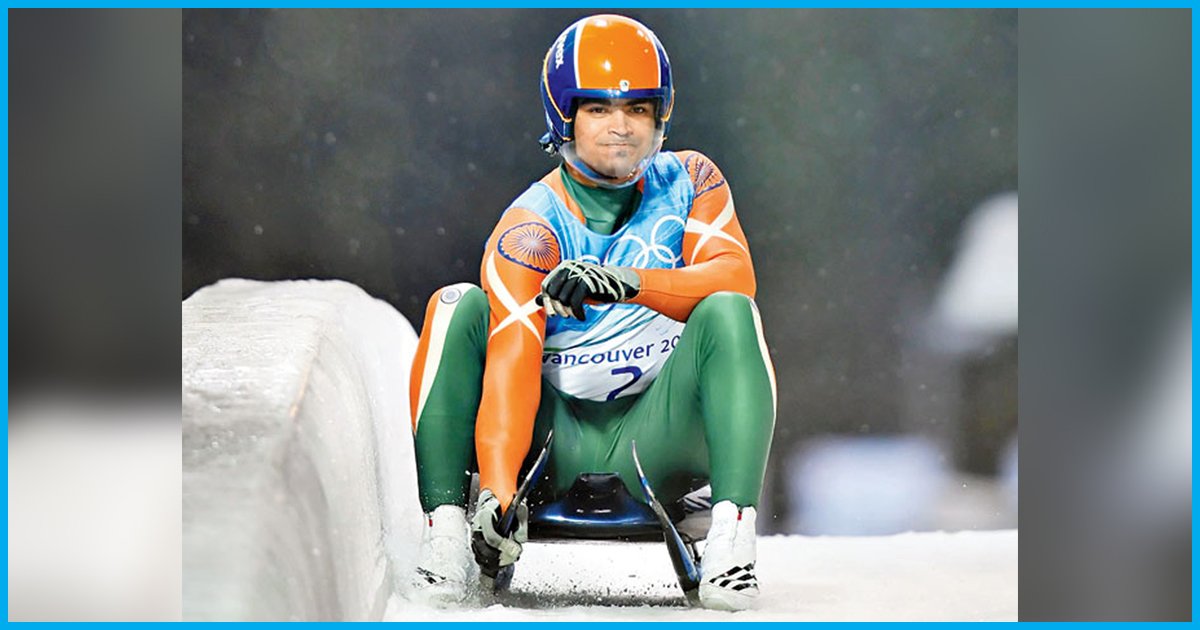Winter (Olympics) is coming, and the athletes will again struggle to win medals at Pyeongchang 2018 in February. But thanks to this Game of Thrones phrase, people now at least know that Winter Olympics is on their way too.
A country with a population of over a billion has failed to win a single medal at any Games since 1964. There’s no consensus, no obvious explanation, no single unified theory of Indian Olympic under-performance. Winter sport here has only a peripheral connection with athletes; it exists mainly to enrich officials and politicians. That athletes have continued to languish in the rankings in successive Olympics has never bothered the IOA.
Not long ago, in December 2012, India was suspended from the Olympic movement after the appointment of tainted official Lalit Bhanot as Secretary General. Bhanot was jailed for 11 months on corruption charges related to scandal-hit 2010 Commonwealth Games.
The International Olympic Committee (IOC) finally lifted the ban after 15 months on February 11, following fresh elections – two days into the Sochi Olympics and bringing the total number of nations competing at Russia’s first Winter Games to 88. It was the first instance when IOC had lifted any suspension in the midst of an Olympic event. Although Shiva Keshavan, Nadeem Iqbal, and Himanshu Thakur marched under the Olympic flag at the opening ceremony, they walked with the tricolour on February 23 when the Games came to an end.

After a fresh election and new committee, infrastructure continued to be scant for winter sports and associations provided little or no assistance to potential future Olympians. The government support was provided grudgingly with only Winter Games Federation of India (WGFI) receiving money from the Ministry and the three other national sports federations – ice skating, ice hockey, and luge neglected.
While Suresh Kalmadi and his successor Abhay Singh Chautala have served prison sentences for causing a loss to the public exchequer and illegally recruiting junior teachers, IOA decided to name both as life presidents in December last year. After a huge uproar in the media, IOA was derecognised by Sports Ministry and the suspension was revoked a fortnight later.
The popular myth about India’s dismal showing in the Winter Olympics is that we are largely a warm and tropical country. However, some parts of India have what even Canada can call a real winter. A home to the highest mountain range in the world, millions of Indians and half a dozen states experience snow every year.
In spite of that, India has produced just one consistent winter Olympian, Shiva Keshavan who will be going for his sixth Games next year. The 34-year-old has been instrumental in putting India on the world map, as far as winter sport is concerned. Of the many hurdles that he cleared – expensive equipment, a chronic lack of practice facilities and the dearth of deep-pocketed sponsors were the toughest to overcome.

Luge is a sport where participants lie on the small sledge in a supine position, which means they are on their backs, looking up, with their feet first as they race down the course. Olympic luge competition has proved to be dangerous and has produced at least two tragedies during the Games.
Keshavan is not ready to give up. He knows the ball is not in his court. All he wants is a fighting chance. Due to globalisation, athletes from hot countries can train in cold countries and then represent their country of origin at the Olympics. To participate in the Games, he has been receiving a scholarship from IOC before the Olympic year to train abroad. According to sources, this year, IOA has not nominated his name which means he is training in the country with a few months left.
The luger from Manali is the only winter sports athlete to get financial assistance from National Sports Development Fund – five lakh of which are still pending. He is currently-ranked within the top 40 which is enough for a Pyeongchang quota. The deadline for qualification is last day of the year – December 31.
People might argue that India has only fetched a handful of Olympic medals since independence and chances of a winter medal are next to zero. And why not? We’ve been sending single-digit athletes every time from a nation of over one billion people.

To make India more competitive in winter sports is not an easy task. Vishwaraj Jadeja argued that India is in desperate need of fundamental changes in administration to become a sports powerhouse. That’s much easier said than done.
The ice-skater from Ahmedabad has shifted base to the Netherlands as ice skating for the Dutch is what cricket is for Indians. The Netherlands has won 24 medals in Sochi, 23 in long-track speed skating, a 24th in short-track. Currently training in Utrecht, he has broken the national record 65 times across various distances ranging from 500m to 10000m.
Shiva feels while every player (past or present) will have an experience about being denied their dues by administrators, a surprisingly small number of them enter administration to change the system that has wronged them. On the other hand, what surprises Vishwaraj is the eight-member Olympic Task Force (OTF) headed by Abhinav Bindra constituted to recommend the roadmap for improving India’s performance in the next three Olympics has completed overlooked winter games in its entirety.
There was almost an Abhinav Bindra moment at the Asian Winter Games in Sapporo, Japan last February. Similar to how the ace shooter took the podium in Beijing wearing a pair of Bermuda shorts under his jacket after an XXL track pant was sent to him, an ice skater had a Beijing 2008 tracksuit offered to him just before the opening ceremony.

Expressing his hope for the sport, aside from wanting to see more facilities being built, Vishwaraj wishes to qualify for the Pyeongchang Games, the last date of which is January 15 and hopes his achievement will inspire more Indian to take up ice skating and compete internationally.
It will be monumental if an ice skater qualifies and participates next year. The media coverage might spark an interest, and many young Indians might get involved. The national record-holder is training very hard and clocking the qualification timing regularly for the last 18 months. But will have to clock it during the racing season of 2017-18.
After spending some time with Stephen Paul at the Asian Winter Games in February, he was impressed with the commitment, dedication, and strong work ethics shown by the young skater from Hyderabad, currently training in Salt Lake. The Olympic times are out which Stephen has to achieve this season, and he is only clocking a couple of seconds less. Shruti Kotwal is another skater who has been training in Calgary for three years without getting support and a single penny from the Ministry. With the qualifiers in a couple of months, she is racing against time to qualify for the Games.

The commitments of IOA and Associations have been a bit hollow. Of course, the Olympics are special, but till the administrators start giving sports some attention on a more regular basis, Indians shouldn’t expect them to bring home Olympic glory ever. It’s like either remaining a one-sport wonder or giving a fresh start and hoping there are better days to come for winter sports.
The athletes will no doubt face tough adversaries again in South Korea next year. However, with the improving track record displayed by some of the athletes throughout the years, there is no doubt that the country can reach better heights some day.
And while an Abhinav Bindra for any of the winter sports may seem a little far-fetched, let’s hope through the continued success and dedication shown by the skaters and skiers, we can prove to the world that despite our geographical location and lack of support, Indians are capable of achieving their dreams – no matter how impossible it may seem.
As of now, that day is not here. Winter is not here.
 All section
All section














